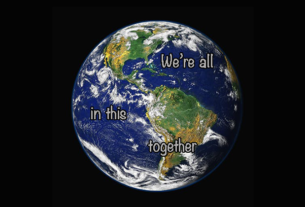You’re a little boy or girl watching a movie. As you’re watching, you are deciding: Who do I relate to? Who am I rooting for or against? And you’re wondering: does the character I’m relating to look anything like me?
If you are part of the “majority”, you may not get this. You need to be an “outsider” to understand what it means to have a character look like you. To be a woman who isn’t just an extension of a man (as the wife or girlfriend full stop), but who has an existence of her own. If you are a person of color, are you the “help” or the head of a corporation? As kids, we model our expectations on what we see around us, including mass media.
I remember an episode of a TV series “Any Day Now” that illustrates this point. The series focused on two women, Rene (an African American) and M.E. (a Caucasian) and showed their lives as kids in the early 1960s and as adults in the 1980s. In the episode (Just the Beginning), young Rene and young M.E. are watching a beauty contest. Rene tells her friend that one day, she’d like to win a beauty contest but M.E. laughs and says it isn’t possible. Look at all the contestants – they’re all white! And, until the 1980s, the Miss America pageant was all white. But, once that barrier was broken, the Miss America contest has seen diversity.
I had the privilege to see the 1994 production of “Carousel” at Lincoln Center. This show, originally produced in 1945, featured an all-white cast. With some updating, but not departing too much from the original, the 1994 cast featured an African American (Audra MacDonald) playing one of the leading roles – Carrie Snow. She was terrific and so was the show. So, a show in which the writer envisioned a white cast still worked with a female black lead.
If you were an African-American seeing that show, you would have felt represented in a way that felt good. One of this year’s Kennedy Center award recipients was Rita Moreno. A trailblazer who, as evidenced by the Latina women who gave her tribute, allowed Latinas to dream that they had a place at the table. Moreno played strong women that happened to be Latina.
It comes down to casting and imagination. Sometimes just seeing something can make it so. Just like many things that we have seen in science fiction films in the 1960s are now a reality, so could “outsiders” become more of the fabric of society. A role doesn’t need to be written for a white person or a black person (and in some cases it doesn’t have to be written for a male or female). The right person, black or white, yellow or red, male or female could bring it to life. And if that person does their job right, it could influence a whole generation, who could see themselves in positions that matter.
And, if that person gets recognized by their industry for being the best at what they do, that sends an even more powerful message to the kids watching at home, trying to figure out where they fit in.
And for those who say, “Well, if that black/latino/Asian/etc. actor was good enough, they’d be on Broadway or in Hollywood movies,” ask yourself this – did a black/latino/Asian/etc actor even get called into the casting director’s office to audition? If Casting and the producers and director saw no “outsiders”, then there is no way an “outsider” had the opportunity to change minds and prove that they were the best person for the role. For example, if a major role calls for a business leader, does the breakdown for casting ask for submissions of white men? Do agents submit only white actors of a certain age? Or do agents buck the trend and submit women of various races and men of various races? Does a casting director who receives these “creative” submissions call any of these “outside the box” actors in for an audition and then forward those auditions to the producer or director of the film? And does that producer or director look at each candidate with an open mind, or does (most likely) he say to himself – I only envisioned a white actor of a certain age, so I will disregard any actor reel that doesn’t meet my preconceived notion.
Certainly minds have been changed. Dustin Hoffman’s role in The Graduate was supposed to be played by an All-American type. But the character, ultimately, was still played by a white man. (I doubt any black actors were given the chance to even read for the role.)
But, if the casting process were more open, with more different types of people auditioning for more kinds of roles, and still no African-American were up for an Oscar on any given year, the argument that maybe no black actor was better than any white actor that year might hold some water. It’s about opportunity.





I do think casting decisions play a big role. A character in a script can be White, Black, Asian, Latino, male or female depending on a choice. What you say about Zeigeist is also true. Do the decision makers or the marketers behind them believe it is possible for a character to be portrayed by X or more importantly, will audiences buy tickets if the role is played by X instead of Y. That’s part of the problem. The problem of the Oscars begins far earlier than the nominations, but it is in the judgments of directors, producers, casters, and marketers. That said, in a year where there were important and good films made, it is a little disappointing not to see that reflected by the Oscar voters.